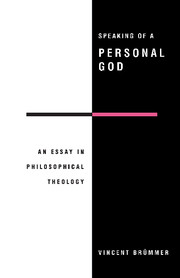Epilogue: theology and philosophical inquiry
Published online by Cambridge University Press: 14 December 2009
Summary
What have we been doing in the foregoing chapters: philosophy or theology? It is clear that the issues discussed in chapters 3 to 6 are among those that are central to systematic theology: the nature of divine grace, the nature of the goodness of God, the nature of divine providential action in the world and the way in which faith can console us in affliction. These are issues which typically arise within the Christian faith. Dealing with them is therefore a typical example of faith seeking understanding (fides quaerens intellectum), and to the extent that systematic theology can be defined as the quest of faith for understanding, these issues are central to systematic theology.
On the other hand, our discussion of these issues has shown that their resolution turns in the end on the logical presuppositions and implications of a number of concepts which play a key role in human life and thought in general, and not merely in the context of religious belief: modal concepts (possibility, impossibility, necessity), relations, personhood, freedom, goodness, absolute and relative values, weakness of will, agency, the ascription of responsibility, the interpretation of experience, love, suffering, and so on. Tracing the logical presuppositions and implications of such concepts belongs typically to the task of philosophers. In this sense systematic theology as faith seeking understanding is heavily dependent on the methodological skills and the conceptual analyses of philosophers. Systematic theologians who try to dispense with philosophical analysis will have to make do with the intuitive grasp of these concepts, which, as we argued in chapter 1, they share with all other participants in the cultural heritage to which they were introduced on their mother's knee.
- Type
- Chapter
- Information
- Speaking of a Personal GodAn Essay in Philosophical Theology, pp. 152 - 158Publisher: Cambridge University PressPrint publication year: 1992



